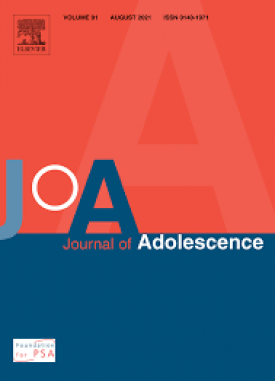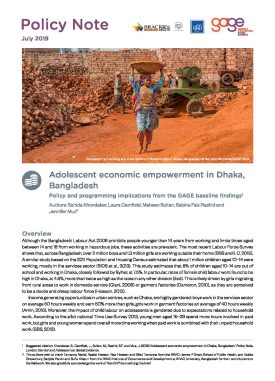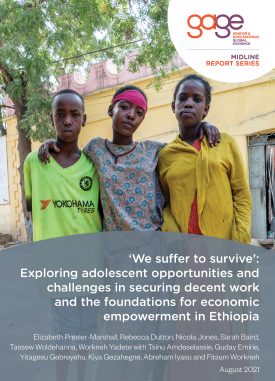Improving pathways for girls and disadvantaged youth through secondary education and into work: Evidence and reflections from practice
Related publications
Journal articles
22.03.22
Identifying latent classes of empowerment among early adolescent girls and the factors that cultivate them: Evidence from a community-based skills training program
Education and learning
Bangladesh
Read more
Identifying latent classes of empowerment among early adolescent girls and the factors that cultivate them: Evidence from a community-based skills training program
Read more
Reports
12.08.21
‘We suffer to survive’: Exploring adolescent opportunities and challenges in securing decent work and the foundations for economic empowerment in Ethiopia
Economic empowerment
Ethiopia
Read more
‘We suffer to survive’: Exploring adolescent opportunities and challenges in securing decent work and the foundations for economic empowerment in Ethiopia
Read more


